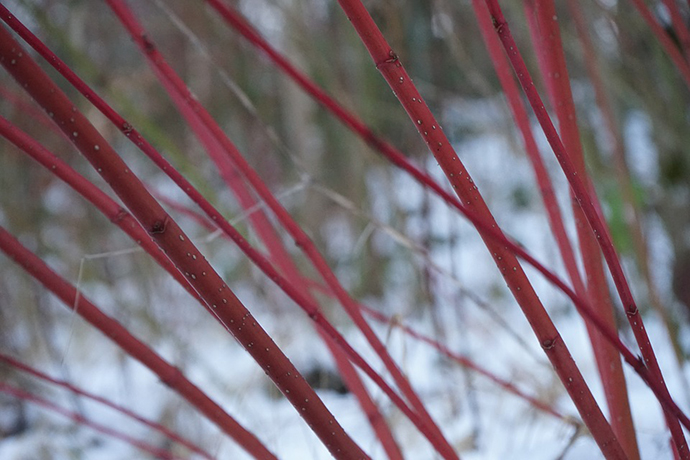Fall Planting Brings Winter Color
 Most nurseries and garden centers are holding fall sales to reduce plant inventory. The timing is right, because with cooler temperatures, now is a great time to plant. Many plants are available that will help create winter interest in the yard. Consider these varieties for a splash of color in the upcoming months.
Most nurseries and garden centers are holding fall sales to reduce plant inventory. The timing is right, because with cooler temperatures, now is a great time to plant. Many plants are available that will help create winter interest in the yard. Consider these varieties for a splash of color in the upcoming months.
Lavalle hawthorn: This beautiful and durable tree grows well in most populated areas of Utah. It has white spring flowers and dark green summer leaves. The leaves often turn brilliant red in late fall and stay on the tree until December. The fruit is also red and stays on the tree most of the winter, serving as a meal for cedar wax wings and other birds. This tree can have thorns, but they do not generally cause problems.
Red and yellow twig dogwood: These shrubs thrive in wetter areas of the yard and grow 6 to 12 feet tall and wide. There are many varieties with beautiful coral-red bark, along with a few that are bright yellow. The branches are often used to make wreaths. Heavy spring pruning keeps the size in check and encourages new growth that has the best color.
Holly: Not many holly species perform well in Utah. However, in protected areas, the blue holly series is an exception. These hold their leaves throughout the winter and have the classic holly foliage popular during the Christmas season. These are best grown where they receive afternoon shade. If berries are desired, a male and female cultivar must be grown, such as Blue Prince and Blue Princess. There are many other broadleaf evergreens that can grow in protected areas. They include English laurel, boxwood and Japanese euonymus. They also need afternoon shade and are often browsed by deer.
Crabapples: There are dozens of crabapple varieties available; all with beautiful spring flowers. Unfortunately, they have received an often undeserved reputation as being overly messy. Many new types have fruit in lovely tones of red and yellow. The fruit stays on the tree (referred to as persistent fruit), unlike older varieties, which creates winter habitat for many kinds of birds. Some varieties to consider include Indian Magic, Prairie Fire, Royal Raindrops, Profusion and Snow Drift.
Late winter blooming plants: There are actually a few plants that bloom before forsythia. These include common winter hazel and hellebore. Common winter hazel is rare in Utah, but seems to do well in slightly protected areas. It grows to the same size as a lilac and has delicate, light-yellow flowers. Hellebores are also known as Lenten rose because they start blooming around the same time as the Catholic Lent and continue throughout the spring. They are a perennial and spread a few feet wide per plant.
By: Taun Beddes, Utah State University Extension horticulturist, 801-851-8460, taun.beddes@usu.edu


 Utah 4-H & Youth
Utah 4-H & Youth